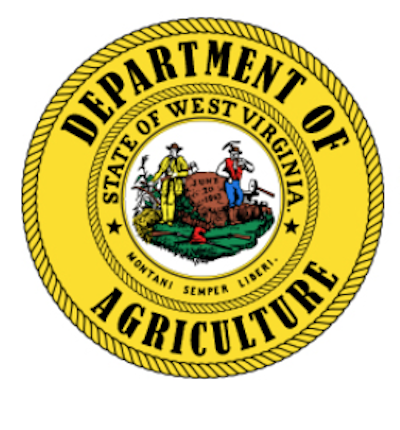West Virginia Press Association
CHARLESTON, W.Va. – Following the confirmed cases of Highly Pathogenic Avian Influenza (HPAI) in dairy cows in the south-central United States, West Virginia Commissioner of Agriculture Kent Leonhardt is strongly urging farmers to enhance biosecurity practices on their farm, especially relating to wild birds in proximity to cattle. There have been no positive cases reported in West Virginia.
Commissioner Leonhardt is encouraging West Virginia dairy farmers to use caution in the movement of dairy cows from affected dairies in states that have ongoing cases. One human case has been confirmed by the Centers for Disease Control (CDC) in a Texas dairy farm worker who exhibited signs of eye redness (consistent with conjunctivitis), with no other symptoms, and is recovering. CDC indicates the overall risk to people remains low, but suggests dairy workers use precautions such as avoiding unprotected exposures to sick or dead animals, including wild birds, poultry, other domesticated birds, and other wild or domesticated animals, including cattle. https://www.cdc.gov/media/releases/2024/p0401-avian-flu.html
Producers should monitor herds closely for cattle with clinical signs of the disease (decreased milk production; reduced appetite; thickened and discolored milk; lethargy; fever; and/or dehydration).
However, there continues to be no concern over the safety of the commercial milk supply as pasteurization has continually proven to inactivate bacteria and viruses, like influenza, in milk. Dairies are required to send only milk from healthy animals into processing for human consumption. Milk from impacted animals is being diverted or destroyed so that it does not enter the human food supply.
“We want to ensure West Virginia consumers that our pasteurized milk and products made from pasteurized milk, are all safe for consumption,” stressed Commissioner Leonhardt. “FDA reports there is currently no disruption of overall U.S. milk and milk product supplies.”
USDA-APHIS continues to work closely with the Food and Drug Administration (FDA) and CDC, as well as state veterinary and public health officials, to investigate and diagnose activities regarding the illness in livestock, including dairy cows. See: vs-recommendations-hpai-livestock.pdf (usda.gov) No reports to other livestock products have been found in our food system.
Federal and state agencies will continue to share additional updates as information becomes available. USDA-APHIS has also prepared a Frequently Asked Questions (FAQ) document, which can be accessed here. Like other currently unaffected states, WV is likely to increase movement requirements via Certificates of Veterinary Inspection (CVI) augmentation language for accredited veterinarians in affected states. Requirements for all states can be found at InterstateLivestock.com, and WV’s will be updated, as needed.
WV dairy farmers should report any suspect dairy cases (decreased lactation, low appetite, and other clinical signs) to their veterinary practitioner. Producers and veterinarians should contact the WVDA Animal Health Division at 304-558-2214. 2022–2024 Detections of Highly Pathogenic Avian Influenza (usda.gov).




